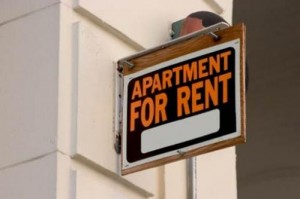The Best Tips for Long Distance Moving
Long Distance Moving
Whether you’re moving between neighboring cities, across the country or moving into Canada, there is no doubt going to be some normal stress involved with the big move. The good news is that we have compiled the best tips and information to help take some of the stress away.
As soon as you know that you will be moving, it is time to create a plan, including scheduling important time frames. The first questions you need to answer will be about the move itself- is this a permanent move? Perhaps, it is a temporary move with a work contract or another temporary situation? Establishing this will help you to understand if you will be needing a rental property for the duration of your contract, or if you plan on purchasing a home or renting a property for the long-term and more.
If you are unsure if this is a permanent move to a new location, we recommend following the steps below, however rather than moving all your personal belongings to a new city, consider placing them in storage until there is certainty of your plans. You can always rent a furnished home in the interim.
Planning and Scheduling for your Long Distance Move
Whether you like to go with the flow or you want every moving-related task recorded in a spreadsheet, you should write down everything you need to accomplish. We know that’s a lot to juggle, so to help you out, we have compiled a detailed checklist below with the most important tasks.
Moving Checklist
- Find a home- whether this is a rental property or you’re buying a home, this is one of the most important tasks to check off your list before doing anything else.
- Locate and secure storage facilities if needed.
- Create a realistic budget for moving expenses.
- Create a moving file or on Google Drive to store quotes and receipts.
- Hire a moving company, read over documents, and search your movers for legitimacy.
- Plan how to move fragile or unusual items, such as guns, pianos, and fine art.
- Confirm that the moving company you hired is licensed and insured.
- If you are packing yourself, see these tips.
- Request time off work for moving day.
- Choose a school for your kids and request transcripts for your kids from their old school.
- Purge unwanted belongings and plan a garage sale.
- Change your address on drivers’ licence, health cards, car, health and life insurance.
Finding your Home
- Research the city where you will be moving.
- Ask your employer and any friends who are familiar with the city about neighborhoods they recommend and search your new municipality’s website, like the city of Toronto or the city of Vancouver for neighborhood tips and newcomer information.
- Start your property search. If you’re looking for a rental property and know that your move is temporary, a furnished rental is likely the best option to avoid moving all your belongings and furniture with you. Depending on your unique situation, you may be able to rent your own home out while you’re living in another city or you may opt to put your belongings into storage. When it comes to finding the right home, be sure to research various neighborhoods, read reviews and try to select something that meets your most important needs.
- Research your new community for things to do, community centres, schools, parks etc.
- If moving into an apartment, find out about any moving day requirements.
- Keep landlord or property manager information handy in the event things change at the last minute.
- Familiarize yourself with any municipal bylaws related to renting, you can find the BC guidelines here or Ontario’s here.
Moving Day
- Protect your floor and carpets during the move.
- Do a walk through with your landlord or property manager and sign any applicable paperwork.
- Make your bed and unpack your shower curtain and toiletries.
- Get to know your neighbors if you can.
- Go grocery shopping.
- Cover your windows for privacy.
Post Move
- Remember all those receipts we had you save? You could qualify for a tax break, be sure to save them all and submit them to an accountant who can advise when tax season approaches.
- Contact or find out from municipal offices about garbage pick up, recycling facilities and local regulations and information.
- Check to make sure all your utilities are turned on.
- Inspect your furniture to make sure that nothing has been damaged during the move.
- Count your boxes to make sure none of your inventory has been lost.
- If you have used professional movers and anything has been lost or damaged during the move, report it right away.
- Inspect your apartment to see if there are any marks or broken items that were there before you moved in. Report these to your apartment management team so you are not on the hook for the damages when you move out.
- Unpack your priority box or any box with items you right away.
- If you have children, let them pick one box of theirs to open so they can have a favorite toy or security item to help them transition to their new apartment.
- Unpack linens and towels so you can make beds and shower.
- Unpack enough clothes to get you through the next few days.
The Takeaway
Long distance moving is stressful regardless if you choose to do it yourself or hire professionals.
The best way to ensure your move goes as smoothly as possible is to be prepared, stay organized and do as much before-hand planning as possible. For furnished and unfurnished rental properties, view our listings page with over 3000 listings and connect with one of our Licenced Leasing Agents who are experts in their cities. We can take the stress out of finding the perfect home.

